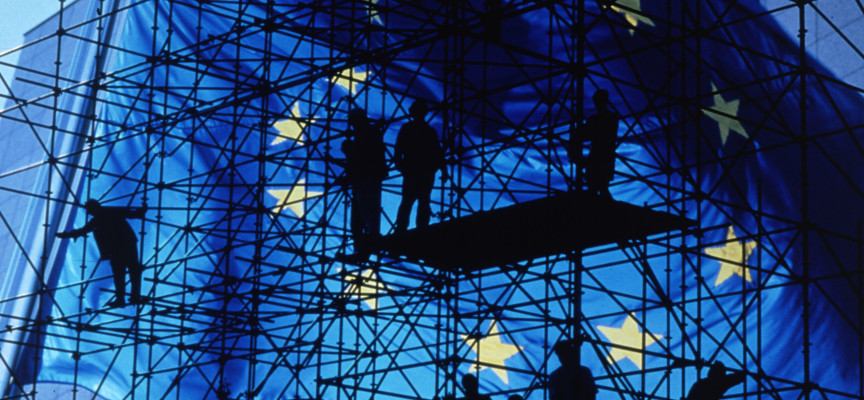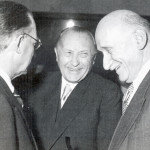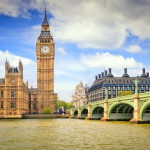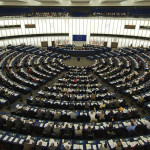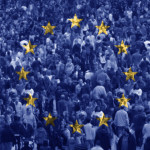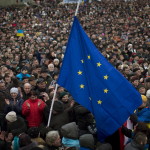A few days after the results of the European elections is still very heated debate on the future of the European Union and more generally of Europe. The growth of pessimism and skepticism – far from weakening the commitment of those who believe in the Europe of peoples, cultures, spirit – imposes an in-depth analysis on the reasons of being European citizens today.
Bearing this in mind, we will offer some reflections of the great figures of European cultural history. We will open this path with Romano Guardini (1885-1968), Italian German philosopher, European philosopher and thinker of Europe.
“Undoubtedly, no form of life is eternal. Great civilizations have sunk and are recognizable in their past only by scanty remains. We know, and we will come harder and harder to know, how fearfully Europe raged against itself and how deeply it betrayed its own spirit. Everywhere cities were destroyed and languages became less civilized and what happened in men’s soul cannot be measured. However, the European basic structure exists; indeed, we see it in every gesture, we can perceive it in every word, we feel it in ourselves with a new painful intensity. Therefore, we are confident that it will continue and will be subject of history. However, here it is not only one’s will to decide, but also the position taken by the others. Will the powers outside Europe still attach importance to Europe after that forces and weights have shifted? I think so. (…). In so far as the world relationships will not only strengthen themselves externally, but also spiritually clarify, it will also be recognized what Europe means even more, perhaps now in a completely new way, precisely because it is so terribly weakened from the political and physical point of view (…) That Europe needs to examine itself with the most decisive seriousness and reflect on its own being does not need to be further emphasized . (…) One thing is for sure: Europe will be Christian or it will not be at all.
It can be rich or become poor: it can have a highly developed industry, or have to return to the rural level; it may be this or that political form, in everything it remains itself until it lives its basic form. (…) The being of Christ has freed the heart of the European man. His personality gave him the extraordinary ability to live history and experience its destiny. Its seriousness, whether he would or not, has supported the work of the European spirit. (…) If Europe must still exist in the future, if the world still needs Europe, it will have to remain that historical entity determined by the figure of Christ, and rather it has to become with a new seriousness what it is according to its essence. If it leaves this core, what still remains of it will not have much to communicate”.
A pochi giorni dai risultati delle elezioni europee è ancora molto acceso il dibattito sul futuro dell’Unione europea e più in generale dell’Europa. La crescita del pessimismo e dello scetticismo – ben lungi dall’affievolire l’impegno di quanti credono nell’Europa dei popoli, delle culture, dello spirito – impone un approfondimento sulle ragioni dell’essere oggi cittadini europei.
Con questo intento si proporranno alcune riflessioni di grandi figure della storia culturale europea. Ad aprire questo percorso è Romano Guardini (1885-1968), filosofo italo tedesco, pensatore europeo e pensatore dell’Europa.
“ Certo nessuna forma di vita è eterna. Grandi civiltà sono sprofondate e sono riconoscibili nel loro passato solo da scarsi resti. Sappiamo e sempre più duramente verremo sapere quanto paurosamente l’Europa ha infuriato contro se stessa e quanto profondamente ha tradito il suo proprio spirito. Ovunque sono state distrutte città e sono imbarbariti linguaggi e non si può misurare quanto è accaduto nell’anima vivente. Tuttavia la struttura essenziale europea c’è; la vediamo anzi in ogni gesto, la percepiamo in ogni parola, la sentiamo con intensità nuova dolorosa in noi stessi. Così siamo fiduciosi che continuerà e sarà soggetto di storia. Però qui decide non solo il proprio volere, ma anche la presa di posizione degli altri. Attribuiranno le potenze extraeuropee ancora importanza a un’Europa dopo che le forze e i pesi si sono stati spostati? Credo di sì. (…) Nella misura in cui i rapporti mondiali non solo si consolidano esternamente, ma si chiarificano spiritualmente, si riconoscerà anche che cosa l’Europa significhi ancor sempre, forse ora in modo del tutto nuovo appunto perché nel senso politico-fisico è così terribilmente indebolita. (…) Che l’Europa debba esaminare se stessa con la più decisa serietà e debba riflettere su suo proprio essere non ha bisogno di essere ulteriormente sottolineato. (…) Una cosa però è sicura: l’Europa diverrà cristiana o non esisterà mai più.
Può essere ricca o diventare povera: può avere un’industria altamente sviluppata o dover ritornare a livello rurale; può essere questa o quella forma politica, in tutto ciò rimane se stessa finché vive la sua forma fondamentale. (…) L’essere di Cristo ha liberato il cuore dell’uomo europeo. La sua personalità gli ha dato la capacità straordinaria di vivere la storia e di esperire il destino. La sua serietà, che lo volesse o no, ha sostenuto l’opera dello spirito europeo. (…) Se quindi l’Europa deve esistere ancora in avvenire, se il mondo deve ancora aver bisogno dell’Europa, essa dovrà rimanere quella entità storica determinata dalla figura di Cristo, anzi deve diventare con una nuova serietà, ciò che essa è secondo la propria essenza. Se abbandona questo nucleo ciò che ancora di essa rimane non ha molto più da significare”.

